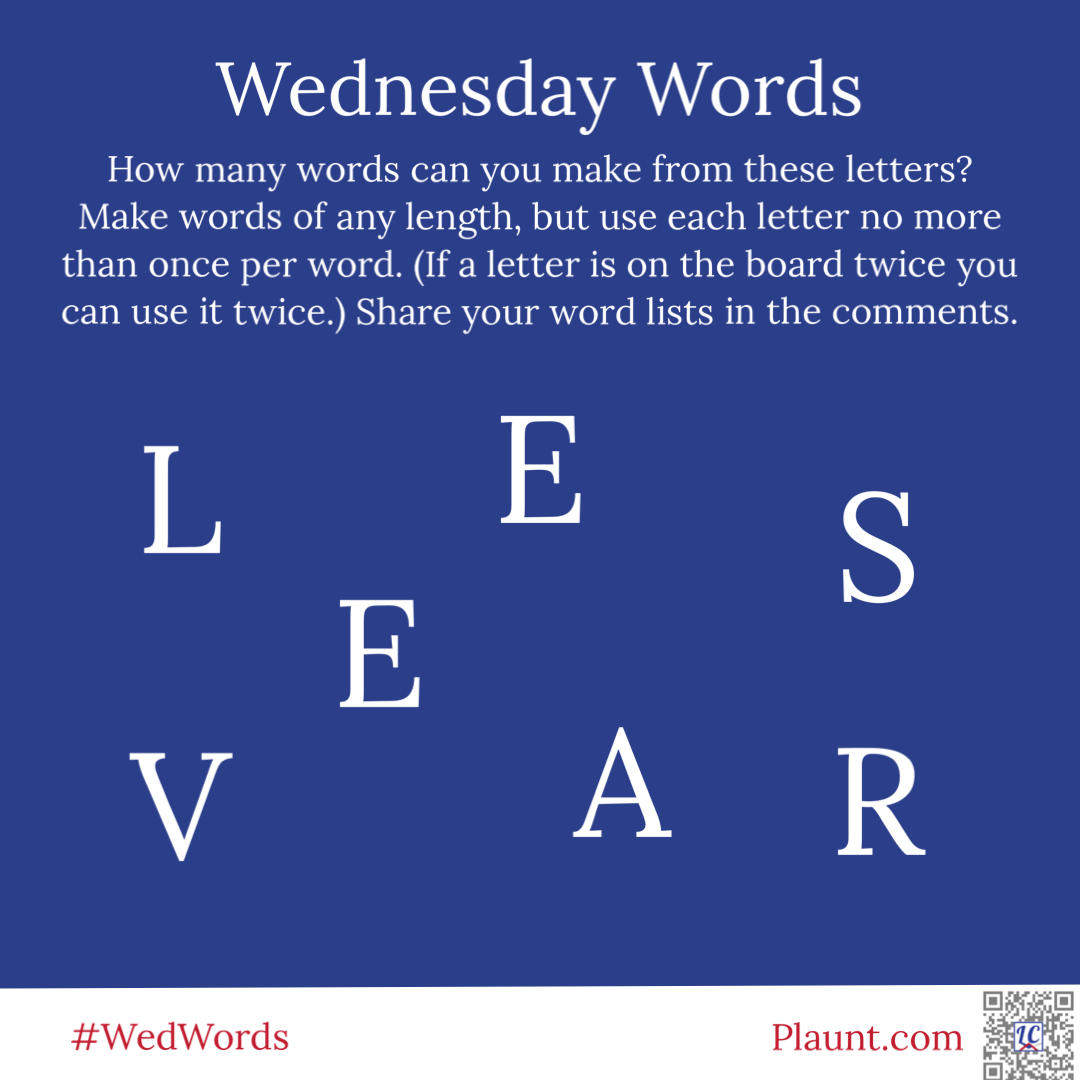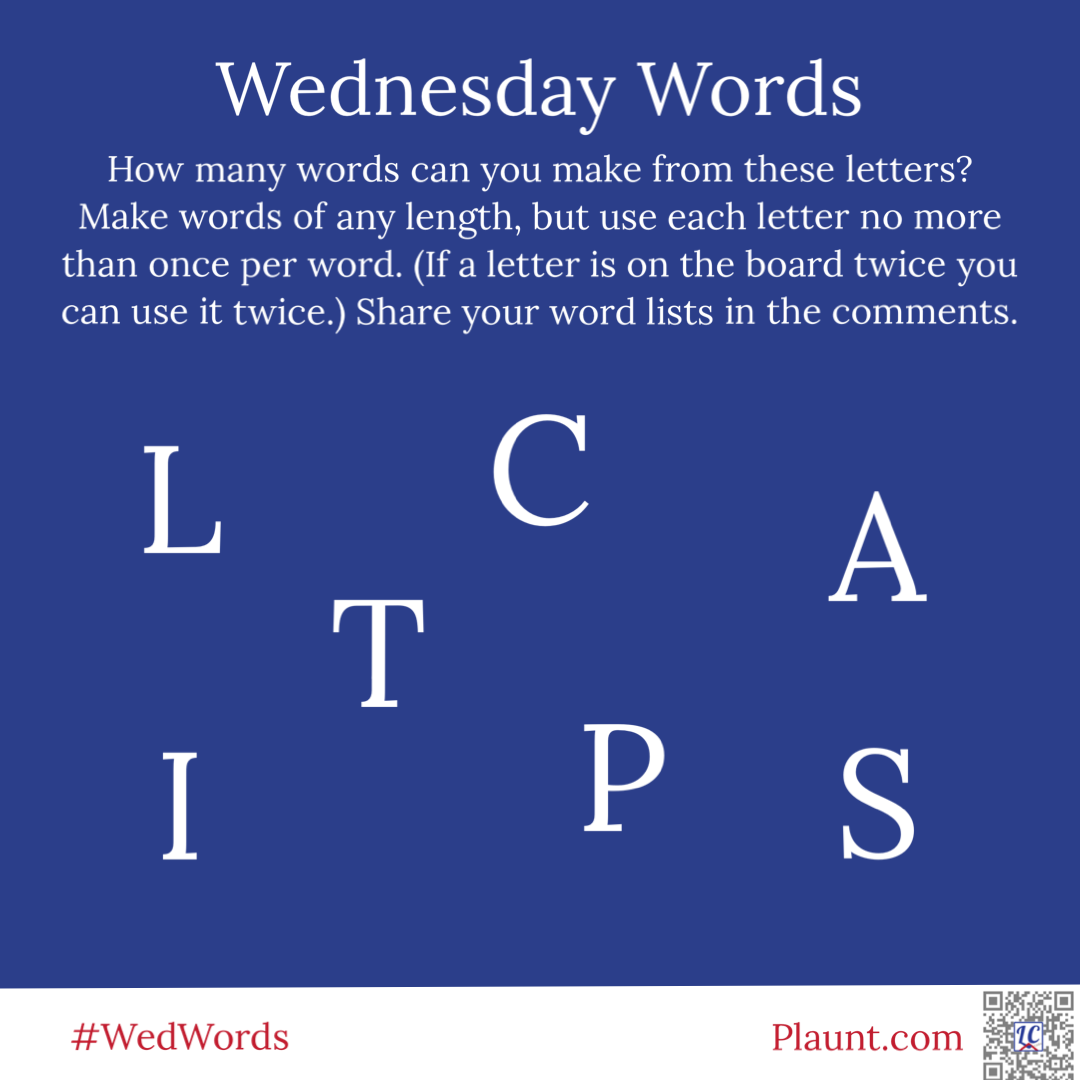How many words can you make from these letters? Make words of any length, but use each letter no more than once per word. (If a letter is on the board twice you can use it twice.) Share your word lists in the comments.

How many words can you make from these letters? Make words of any length, but use each letter no more than once per word. (If a letter is on the board twice you can use it twice.) Share your word lists in the comments.

In two sentences tell me what you have learned about marketing recently.
inconvenience: (noun) a situation that causes trouble or difficulty; something that is not easily accessible or at a suitable time; something that doesn’t meet your needs incontinence: (noun) inability to control the release of urine or fecal matter from your body It may surprise you how often these two words …
For a weekly dose of language-based humour, visit my Facebook page at https://facebook.com/lcplauntMEd
Just keep swimming…
~Dory
How many words can you make from these letters? Make words of any length, but use each letter no more than once per word. (If a letter is on the board twice you can use it twice.) Share your word lists in the comments.

In two sentences tell me what you have learned about editing recently.
duck: (noun) a type of waterbird; meat from that waterbird; a heavy cotton or linen fabric used to make sails and duck tape, now called duct tape unless referring specifically to the brand Duck Tape ® duct: (noun) an enclosed channel that allows the passage of a substanceFor example: heating …
For a weekly dose of language-based humour, visit my Facebook page at https://facebook.com/lcplauntMEd
Success isn’t always about greatness.
~Dwayne ‘The Rock’ Johnson
It’s about consistency. Consistent,
hard work gains success.
Greatness will come.